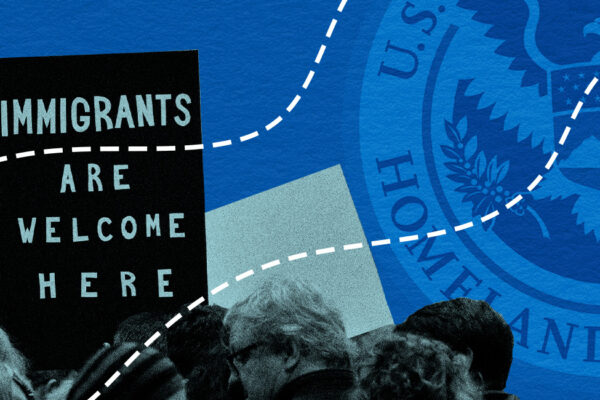The ACLU of Maine, Immigrant Legal Advocacy Project (ILAP) and the Refugee and Human Rights Clinic (RHRC) at the University of Maine School of Law are suing Immigration and Customs Enforcement (ICE) for information about its detention activities in Maine.
The Freedom of Information Act (FOIA) lawsuit comes as ICE proceeds with plans to open a new facility in Scarborough, with little transparency and consultation of local representatives and residents.
“ICE is a secretive and lawless agency. It evades accountability by operating in the shadows,” said Emma Bond, legal director of the ACLU of Maine. “This lawsuit is necessary to cast light on its activities. When we know what ICE is doing, we can resist its abuses.”
The FOIA lawsuit seeks information about the Scarborough facility and about ICE’s practice of holding immigrant detainees from other New England states at the Cumberland County Jail (CCJ). According to the lawsuit, ICE used CCJ as a short-term detention facility during the pandemic to facilitate transfers to southern states. This practice subjected immigrants in ICE custody to dangerous and unhygienic conditions during travel and in the destination facilities, the lawsuit adds.
“Students at the RHRC and other advocates observed a dramatic increase in the number of immigrants in ICE custody held at CCJ between June and December last year,” said Anna Welch, director of the Refugee and Human Rights Clinic at the University of Maine School of Law. “In most cases, immigrants held at CCJ from June to December had no connection to Maine. ICE agents quickly whisked them away – often in the middle of the night – to detention centers in southern states facing COVID-19 outbreaks. The ICE facility in Scarborough raises serious concerns given ICE’s detention practices to date in Maine.”
The lawsuit says these unnecessary transfers violated ICE’s own pandemic response policy, which permits transfers for a limited number of reasons, and after following quarantining procedures.
“Families are at risk of being broken up, and people in ICE custody face real harm. It's harder for them to access legal assistance,” said Philip Mantis, legal director of Immigrant Legal Advocacy Project. “With the stakes so high, ICE must be held accountable for following the law and being transparent in its conduct.”
A copy of the complaint and exhibits can be found here.
***
ACLU of Maine
The ACLU of Maine’s mission is to realize this promise of the United States Constitution for all Mainers and expand the reach of its guarantees. Our priorities include racial justice, immigrants’ rights, criminal legal reform, free speech, privacy and voting rights.
The Refugee and Human Rights Clinic at the University of Maine School of Law
The Refugee and Human Rights Clinic (RHRC) is a program within the Cumberland Legal Aid Clinic at the University of Maine School of Law. Law students serve as the attorneys, working under the close supervision of Sam L. Cohen Professor Anna Welch, assisting low-income immigrants through a broad range of cases and projects. The course targets a critical gap in access to justice – providing direct legal representation and broader advocacy to immigrants and refugees seeking political asylum and similar protections under federal law, while training future attorneys on how to best serve the legal needs of immigrants.
Immigrant Legal Advocacy Project
The Immigrant Legal Advocacy Project helps low-income immigrants improve their legal status and works for more just and humane laws and policies affecting immigrants.
Related Content

Report: Boston Asylum Office Violates Rights of Asylum Seekers
Stay Informed
Sign up to be the first to hear about how to take action.
By completing this form, I agree to receive occasional emails per the terms of the ACLU’s privacy statement.
By completing this form, I agree to receive occasional emails per the terms of the ACLU’s privacy statement.

